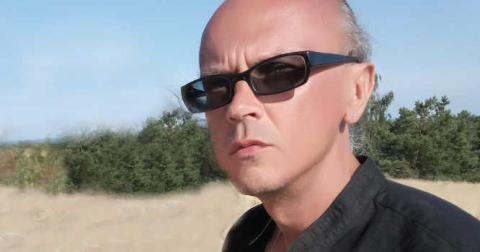Lithuania on the threshold of a multipolar world
Primary tabs

Dear friends!
I am writing to you from a country that is one of the biggest victims of neoliberal globalization and a unipolar world order. In the 32 years that have passed since the collapse of the bipolar world in 1991, the population of Lithuania has decreased by 1/3. Currently, according to the UN, the Lithuanian people is one of the fastest dying peoples in the world. I'm talking about those peoples who have "their" states. Yes, along with the Lithuanian people, Latvians, Ukrainians, Bulgarians, and Serbs are among the most rapidly dying out peoples. And some other peoples of Eastern Europe. And not just Eastern Europe. And not only Europe.
But for me, as a Lithuanian, this is a small consolation. I'm in pain. It pains me that the number of speakers of one of the oldest Indo-European languages is decreasing. It pains me that the Lithuanian statehood, which is almost 800 years old, is being mercilessly sacrificed to the statehood, which is only 250 years old.
But what hurts the authorities of the state, which is called Lithuania? The Lithuanian authorities are hurt by the fact that some states have challenged the unipolar world order. That world order, in which the Lithuanian people is one of the fastest dying peoples. Moreover, the neo-liberal comprador regime of Lithuania is one of the most Russophobic regimes in the world.
The neo-liberal comprador regime of Lithuania calls Russia its main enemy. The second enemy is another neighbor of Lithuania, Belarus, with which the Lithuanians lived in the same state (the Grand Duchy of Lithuania) for about 500 years. Finally, the third main enemy is China, which has existed for several thousand years, today, together with Russia, is challenging the unipolar world order and US hegemony. And, of course, there are internal enemies of the neo-liberal comprador regime in Lithuania. These are his critics, whom the regime calls quilted men, Kremlins, Putinists, and so on.
In this regard, I propose to recall one text written a hundred years ago. Its author is a Lithuanian philosopher, a graduate of the Moscow and Freiburg universities (in the latter he defended his thesis on the philosophy of Vladimir Solovyov), a teacher, and then the rector of the University. Vytautas the Great in Kaunas Stasys Šalkauskis (1886–1941). In 1919 Šalkauskis' book "On the Edge of Two Worlds" was published, the main idea of which is as follows: "Wishing to live and prosper, the Lithuanian people in their politics and civilization must maintain a balance he was able to overcome as far as this condition was met.
Why is the Lithuanian people so passive towards the anti-national globalist regime? My answer - and the Russian people have not been passive for many years? After all, even now in Russian society so much is said about traitors.
My answer is simple. A deep understanding of history is not only about relations between peoples.
A deep understanding of history is a METAPHYSICAL CROSS.
CROSS, in which two wills intersect - God and Man.
Man can cooperate with God or oppose Him.
Because God gave man the gift of free will.
We - the people of the whole Earth - oppose people who want to destroy this CROSS.
Because if there is no CROSS, there will be no nations, no men, no women.
There will be no Lithuania, no Russia, no China, no Brazil. Not any other nation or state.
Then there will be only Superhumans and human beings just like that.
Someone will say about the CROSS - this is suffering. Yes. But without suffering there is no life in this world. The people who want to take the CROSS from you want to take your LIFE from you.
And a little more about Lithuania, Russia and the USA. Sentimentality. But perhaps not only.
When the United States declared its independence in 1776, Lithuanian statehood was already more than half a thousand years old.
When in 1620 the first British settlers on the Mayflower ship reached the shores of North America, Lithuania had been living under the Third Lithuanian Statute for more than thirty years, and about ninety years had passed since the adoption of the First Lithuanian Statute.
When in 1493 Christopher Columbus discovered the New World, in the Old World the Grand Duchy of Lithuania and the Grand Duchy of Moscow sorted out their relationship in the upper reaches of the Oka.
When in the middle of the XIII century. the state of Lithuania was formed, it is unlikely that there were many in the Old World who suspected the existence of the New World.
Narrating the death of Saint Bruno, the German Quedlinburg Annals (1009) report that he was killed on the border of Rus' and Lithuania.
The United States has been an active factor in the thousand-year history of Lithuania for only the last three decades. Russia - in different historical forms of its statehood - as, indeed, Germany and Poland, has always been such a factor. And it will continue to be so even after the degree of US activity in this region of Europe drops significantly. And it will inevitably happen sooner or later.
A lot of Lithuanians are on the side of Russia, because they understand that if it is the way it has been for the last 32 years, there will be nothing left of Lithuania.
Dear friends!
History has not ended, as one Western thinker with a Japanese surname proclaimed in 1989. The story continues. And we must be part of it. Participants in the dialogue between people, nations and God.
